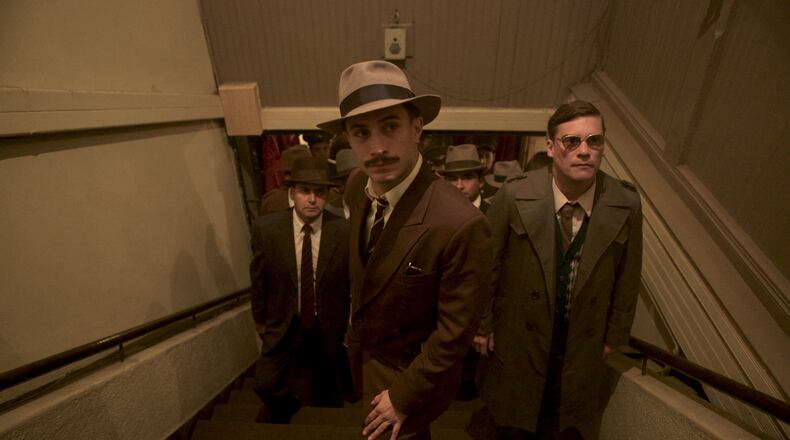“Neruda,” an intoxicating puzzle of a movie directed by Pablo Larrain, chronicles a strange, harrowing episode from the late 1940s, when the Chilean government’s crackdown on communism drove the great poet and politician Pablo Neruda underground. Specifically, the film unravels the tricky game of cat-and-mouse between Neruda and an ambitious police inspector named Oscar Peluchonneau, who sought to track down the dissident artist whose writings had struck a dangerously resonant chord with the working class.
There was, in fact, no Oscar Peluchonneau — or, at least, none who fits the description blithely concocted by Larrain and his screenwriter, Guillermo Calderon. The charm of “Neruda” lies in its insistence that there may well have been, and that it scarcely matters if there wasn’t. Drolly and persuasively, the movie demonstrates that when it comes to evoking the artist and the nature of his art, historical fidelity and literal-minded dramatization go only so far. Fiction, lovingly and imaginatively rendered, can bring us much closer to the truth.
Although informed by the busy workings of history, politics and personal affairs, “Neruda” proceeds like a light-footed chase thriller filtered through an episode of “The Twilight Zone,” by the end of which the audience is lost in a crazily spiraling meta-narrative. Who exactly is the star and author of that narrative is one of the film’s more enticing mysteries.
Initially it seems both roles must be filled by Pablo Neruda, played with prickly, preening brilliance by Luis Gnecco (“Narcos”), who donned a wig and gained more than 50 pounds to achieve his remarkable physical resemblance to the real deal. The key to the performance is that, despite the shimmering inspiration of Neruda’s poetry, neither Gnecco nor Larrain seems to feel any obligation to make Neruda himself a particularly inspiring figure.
Many of the individual scenes in “Neruda” serve a fairly clear narrative purpose. We see the poet consorting with his allies, arguing with his wife, and disobeying his party-appointed bodyguard (Michael Silva) to slip out for a frolic at a brothel or bohemian enclave. We rarely see him writing, though his poems are shown being secretly distributed and playing a huge role in keeping the communist movement alive underground. But even these relatively simple moments are transformed and complicated by the audacity of Larrain’s stylistic conceits.
Unspooling the picture earlier this year at the Cannes Film Festival, Larrain confessed that, even after making the movie, he wasn’t at all sure he knew who Neruda was. And in a typically counterintuitive gesture, “Neruda” doesn’t pretend to know, either. It keeps the man at a playful distance, firm in its belief that the art will sustain our interest, long after the passing of the artist and his historical moment. It’s possible that Pablo Neruda himself would have concurred with this sentiment, though Oscar Peluchonneau might have begged to differ.
MOVIE REVIEW
“Neruda”
Grade: B
Starring Gael Garcia Bernal, Luis Gnecco and Michael Silva. Directed by Pablo Larrain.
Rated R for sexuality/nudity and some language. Check listings for theaters. 1 hour, 47 minutes.
Bottom line: An intoxicating puzzle that will leave the audience questioning who Neruda is
About the Author
Keep Reading
The Latest
Featured


